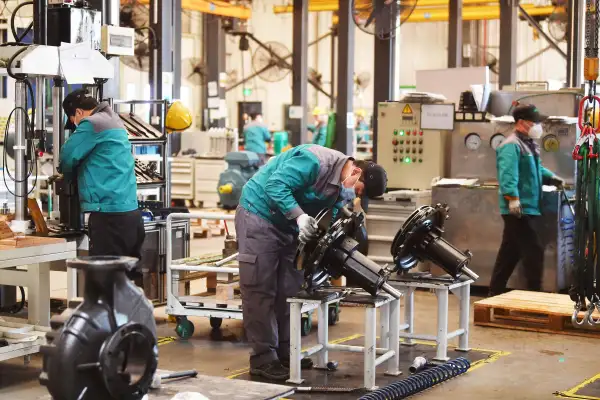Why China’s Reopening Could Be a ‘Ray of Sunshine’ for the U.S. Stock Market
Money is not a client of any investment adviser featured on this page. The information provided on this page is for educational purposes only and is not intended as investment advice. Money does not offer advisory services.

After more than two years of strict rules to prevent the spread of COVID-19, China is finally reopening its economy. Experts say the change could have a significant impact on investors across the globe.
“This is going to be really important” for markets in the U.S. and around the world, says Callie Cox, U.S. investment analyst at eToro. Cox says the story of China’s reopening will be one about “the balance between global growth and inflation.”
But it may not be smooth sailing for investors.
On one hand, a boom in economic activity in China will likely spur growth around the world and help ease the supply chain pressures that have built up since the beginning of the pandemic. On the other hand, the sudden release of all that pent-up demand could push inflation higher. That's because stronger demand for goods, services and raw materials will likely increase prices — especially if supply is limited within China and around the world.
In the U.S., that could mean higher interest rates for longer, since the Federal Reserve has been hiking rates to bring down spiraling consumer prices. Higher interest rates tend to weigh on the price of financial assets, like stocks.
China’s reopening will likely spur growth
Between significant losses in the stock market and continued fears around a possible recession, investors have had a rough year. But China’s reopening could be “the ray of sunshine making its way through the dark cloud of tightening U.S. financial conditions,” Amit Sinha, head of multi-asset design at Voya Investment Management, tells Money.
He says that on the whole, a newly reopened China will be a net positive for the U.S. market.
China is one of the world's biggest economies and, before the pandemic, was a top source of international travelers. As supply chain pressures ease, companies will likely see more revenue from Chinese consumers — especially as tourism bounces back.
China’s growth won’t outweigh U.S. market pressure
Major geopolitical developments like China’s reopening also bring a significant level of uncertainty.
“There are going to be a lot of ups and downs with this,” Cox says, adding that much of that movement could be driven by day-to-day headline news.
In the U.S., the stock market is also contending with mounting headwinds that could push stocks lower: Fed Chair Jerome Powell signaled this week that rates could rise more than expected, and it’s still possible we’ll see a recession this year.
Those local factors “will have a far greater impact on U.S. markets than China’s reopening," Sinha says.
How to invest as China reopens
Because of China’s size and prominence on the world stage, experts say investors should have at least some exposure to China in their portfolios. But investing in international stocks directly can be very complicated.
That's why Sinha says “it may be more prudent to look at China exposure more broadly as part of your international exposure, and use index funds or professionally managed international equity funds instead of trying to pick stocks on your own.”
And don’t forget: Many of the largest public companies in the U.S. already have significant exposure to China, including “a lot of the popular names that retail investors hold,” Cox says. (Think Amazon, Apple and Microsoft, just to name a few).
That means that even if you aren’t investing directly in Chinese stocks, or broadly in international assets, you’re probably exposed in some way. Cox says dynamics in China could affect the performance of those large U.S. companies. "Eventually,” she adds, “you’ll see [those dynamics] pop up in prices.”
More from Money:
How the Fed's Smaller Rate Hike Could Affect Investors
Here’s What Investing Experts Are Watching in 2023, From Inflation to China’s Economic Reopening

